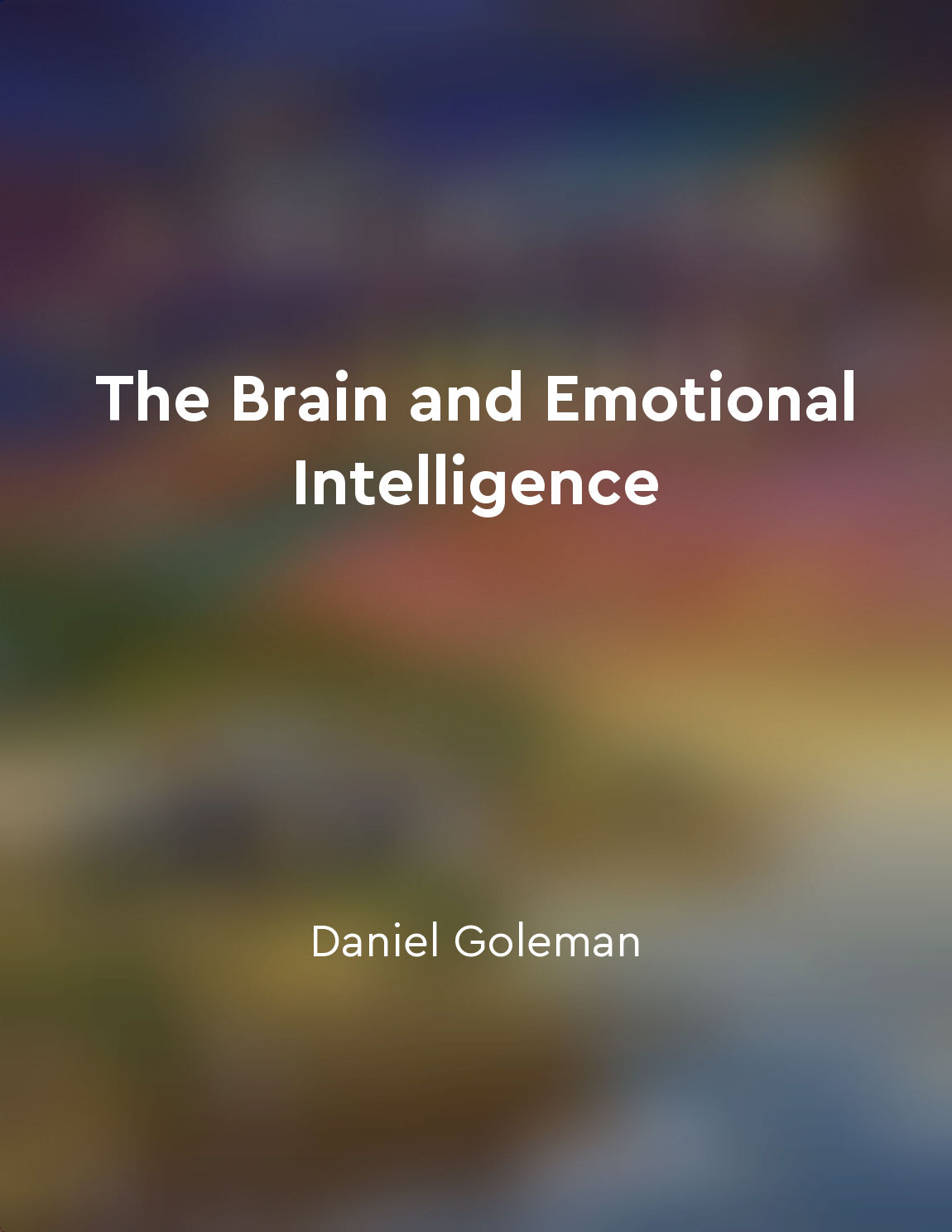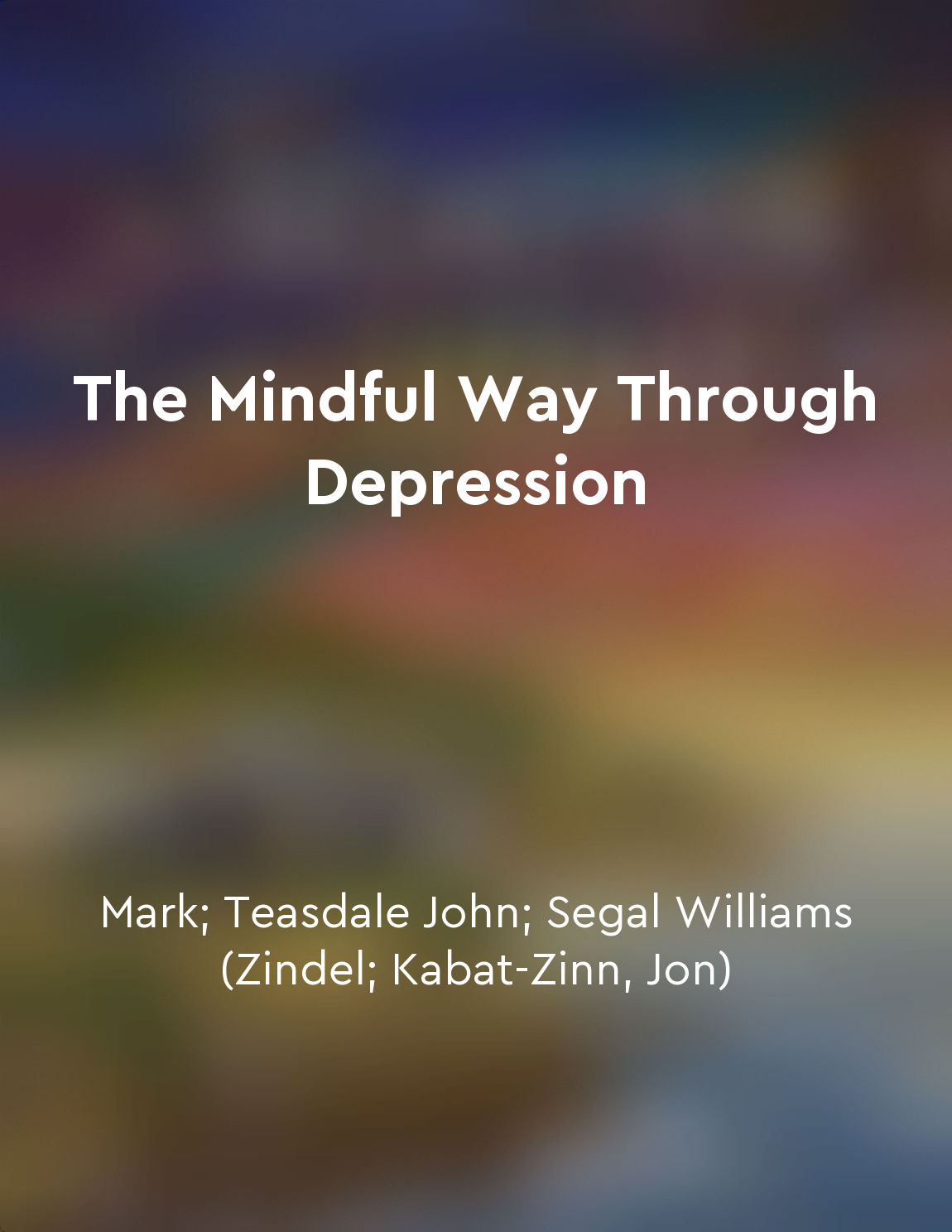Mindfulness involves paying attention to our emotions without reacting impulsively from "summary" of The Mindful Way Through Depression by Mark; Teasdale John; Segal Williams (Zindel; Kabat-Zinn, Jon)
When we practice mindfulness, we are cultivating a quality of awareness that allows us to observe our thoughts, feelings, and bodily sensations without getting caught up in them. This means that we can pay attention to our emotions as they arise, without immediately reacting to them impulsively. Instead of getting carried away by our emotions and allowing them to dictate our actions, we can observe them with a sense of curiosity and openness. By being mindful of our emotions, we create a space between the stimulus (the emotion) and our response. In this space, we have the opportunity to choose how we want to react. We can notice the arising of an emotion, sit with it, and explore it without judgment. This allows us to respond more skillfully, rather than simply reacting based on habit or impulse. In this way, mindfulness helps us to develop a greater sense of self-awareness and emotional intelligence. We become more attuned to our internal experiences and better able to regulate our emotions. We can also gain insight into the underlying causes of our emotional patterns and learn to respond to them in a more adaptive and compassionate way. When we practice mindfulness in this way, we are not denying or suppressing our emotions. Instead, we are acknowledging them and giving ourselves the space to process them in a healthy manner. This can help us to break free from the cycle of reactivity and create a more balanced and resilient relationship with our emotions.- Mindfulness involves developing a deep awareness of our emotions and learning to respond to them with wisdom and compassion. It is about being present with our internal experiences, rather than being carried away by them. Through mindfulness, we can cultivate a greater sense of inner peace and emotional well-being.
Similar Posts

Emotional intelligence can improve communication and conflict resolution
One of the key benefits of emotional intelligence is its ability to enhance communication and facilitate conflict resolution. W...

Developing a regular meditation practice can lead to lasting changes in the brain
Developing a regular meditation practice has the potential to cause structural changes in the brain. This is a groundbreaking f...
Mindfulness is about being present with what is
Mindfulness is not about getting anywhere else. It is about being where you already are and knowing that you are there. It is a...
Happiness is a complex emotion
Throughout the exploration of happiness, it becomes evident that this emotional state is not a simple, straightforward feeling....
Being present can lead to a greater sense of fulfillment
Being present means showing up fully for your life, moment by moment, without judgment. It means being aware of what is happeni...

Improving communication with others
Improving communication with others is a crucial skill that can greatly enhance your relationships and overall well-being. Effe...
Enlightenment is achievable through mindfulness
The idea that enlightenment is achievable through mindfulness is central to Buddhism. Mindfulness involves paying attention to ...
The importance of moral conduct is underscored in Buddhist teachings
Buddhism places a strong emphasis on moral conduct as a fundamental aspect of spiritual practice. The teachings of Buddhism hig...
Understanding the causes of melancholy is crucial for addressing it effectively
It is imperative to delve into the root causes of melancholy in order to effectively combat its effects. By understanding the u...
Selfcompassion is not about self-pity or self-indulgence
Self-compassion is fundamentally different from self-pity and self-indulgence. Self-pity is more about feeling sorry for onesel...


